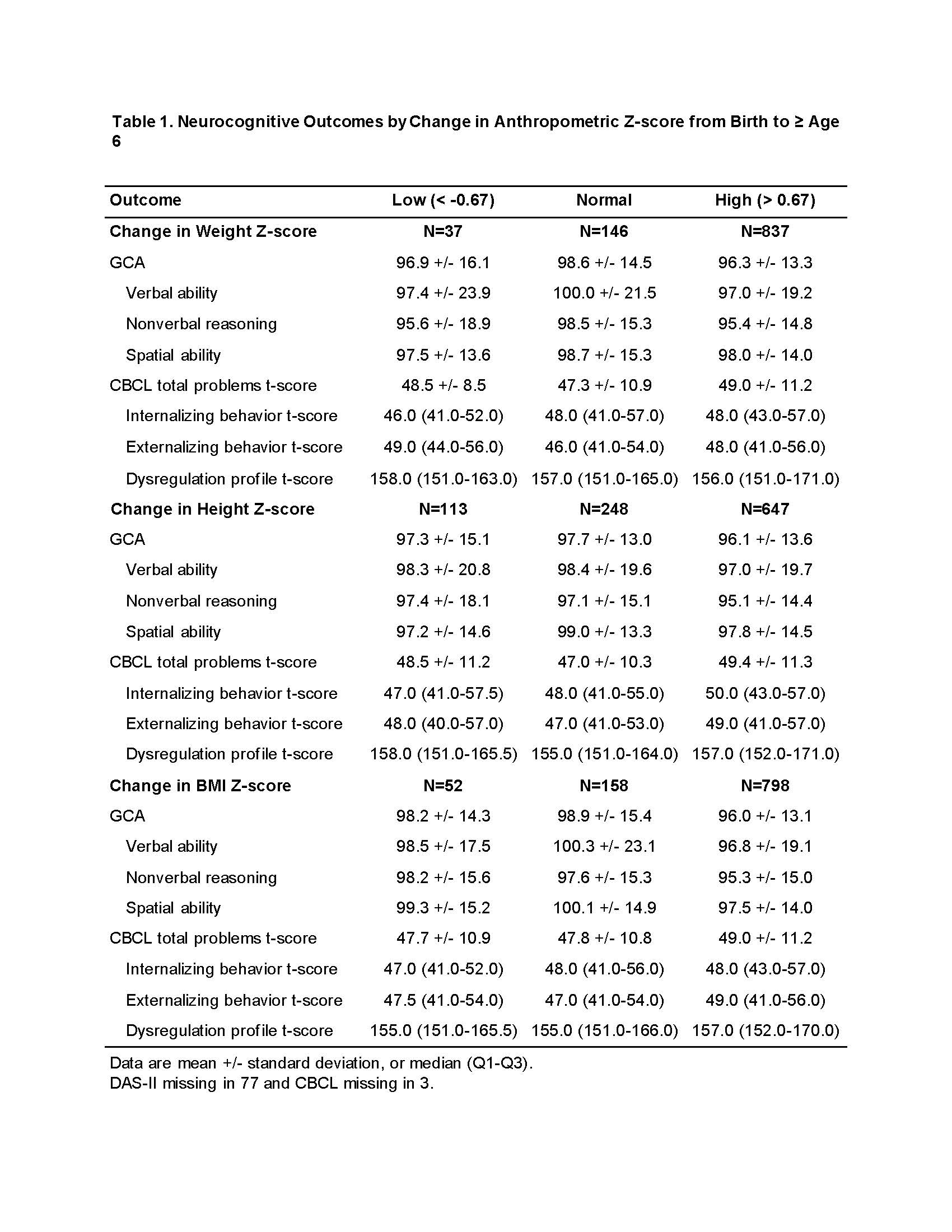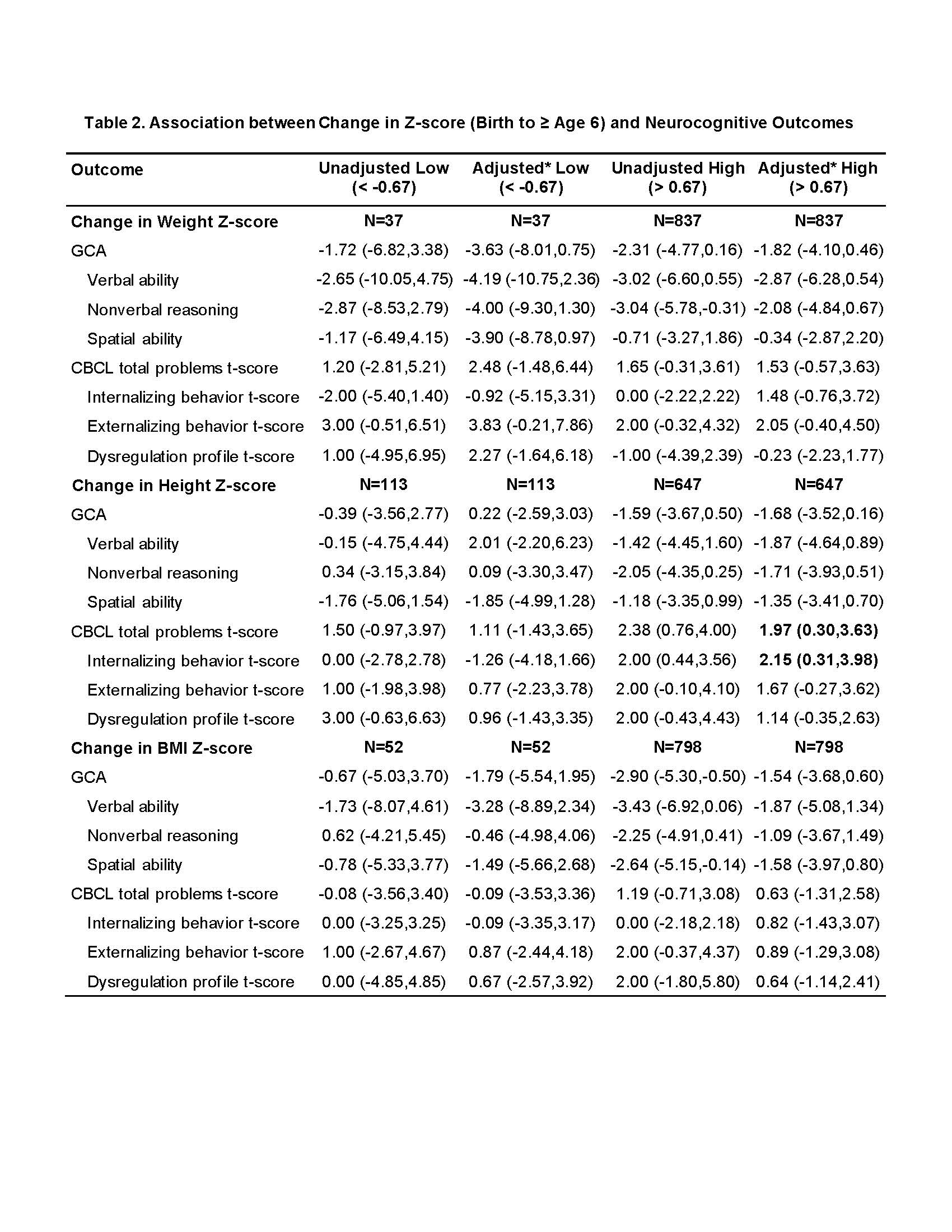Neonatology
Session: Neonatal Follow-up 2
501 - Change in anthropometrics between birth and childhood and school-aged neurocognitive outcomes
Saturday, May 4, 2024
3:30 PM - 6:00 PM ET
Poster Number: 501
Publication Number: 501.1111
Publication Number: 501.1111
- TO
T. Michael MD O'Shea, MD, MPH
Professor of Pediatrics
T. Michael O'Shea, MD, MPH, Professor of Pediatrics
University of North Carolina School of Medicine
Chapel Hill, North Carolina, United States
Presenting Author(s)
Background: Among infants born preterm, weight gain during infancy has been associated with adverse childhood neurodevelopmental outcomes, although few studies have extended follow-up into early childhood.
Objective: In a large multi-site cohort of children, most of whom were born late preterm (34-36 weeks), we evaluated the relationship between gains in weight, height, and BMI from birth till childhood, and cognitive and behavioral outcomes at ≥ 6 years of age.
Design/Methods: Secondary analysis of a prospective, follow-up study of ≥ 6 year-old children delivered to women at risk of late preterm delivery enrolled in an antenatal corticosteroids trial. Children were included in this analysis if they had complete anthropometric data. Height and weight were measured by trained study staff at 6-11 years old. Weight, height and body mass index (BMI) Z-scores at birth were derived from World Health Organization growth standards, and Z-scores at ≥ 6 years using the Centers for Disease Control and Prevention Growth Charts. Change in height, weight and BMI z-score from birth to ≥ 6 years were categorized as low (< -0.67), normal (-0.67 to +0.67), or high (> +0.67). Cognitive outcomes were evaluated at ≥ 6 years old with the Differential Abilities Scales, 2nd edition core components of the general conceptual ability that includes verbal, non-verbal reasoning, and spatial ability and behavioral outcomes with the Child Behavior Checklist scores. Associations between change in z-score and outcomes were estimated as mean or median differences (95% confidence intervals), with normal gain as referent. Univariable and multivariable analyses were performed, the latter adjusting for pre-specified characteristics including maternal age, gestational age (GA) at delivery, maternal education, treatment assignment, small for gestational age ( < 10th percentile), maternal weight and height at enrollment in trial, and center.
Results: Of 1,026 enrolled in the follow-up study, 1,020 were included in weight analyses and 1,008 in height and BMI analyses. Median age at follow-up was 7 years [6.5-7.6] and 84% were born < 37 weeks. Neither low nor high gains in weight or BMI were associated with cognitive or behavioral outcomes. High gains in height were associated with more behavioral problems [mean difference: 1.97 (0.30,3.63)] and internalizing behaviors [median difference: 2.15 (0.31,3.98)].
Conclusion(s): In children born predominantly late preterm, neither low nor high gains in weight or BMI during childhood were associated with less favorable cognitive or behavioral outcomes.


